Question And Answer
Publications
Articles, publications, books, tools and multimedia features from the U.S. Institute of Peace provide the latest news, analysis, research findings, practitioner guides and reports, all related to the conflict zones and issues that are at the center of the Institute’s work to prevent and reduce violent conflict.

Mirna Galic on the Role of Indo-Pacific Partners at the NATO Summit
While much of the conversation at this week’s NATO summit will be focused on Russia’s war in Ukraine, the presence of NATO partners Japan, South Korea, Australia and New Zealand “is a testament to … [NATO’s] interest in the Indo-Pacific and the focus on the challenges that China poses for the alliance,” says USIP’s Mirna Galic.
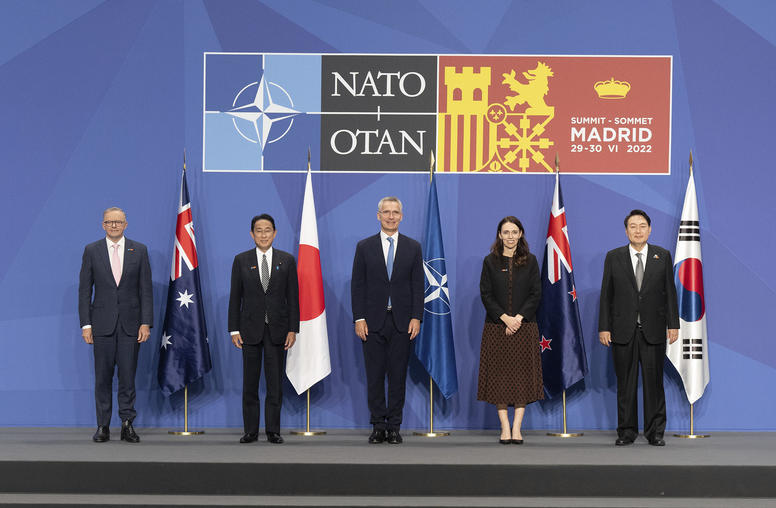
What’s Behind NATO’s Tightening Ties with its Indo-Pacific Partners?
NATO’s summit in Madrid, Spain, in June 2022 marked the first time the four leaders of NATO’s Indo-Pacific partner countries — Australia, Japan, New Zealand and the Republic of Korea (ROK) — joined NATO counterparts for a meeting at the heads of state and government level. July 2023, at the NATO summit in Vilnius, Lithuania, will mark the second. The high level of media attention paid to the attendance in Madrid of the Indo-Pacific partners, known informally as the Indo-Pacific Four or IP4, is likely to be repeated in Vilnius. Beyond this, what should Indo-Pacific watchers expect from the Vilnius Summit in terms of NATO-IP4 developments?
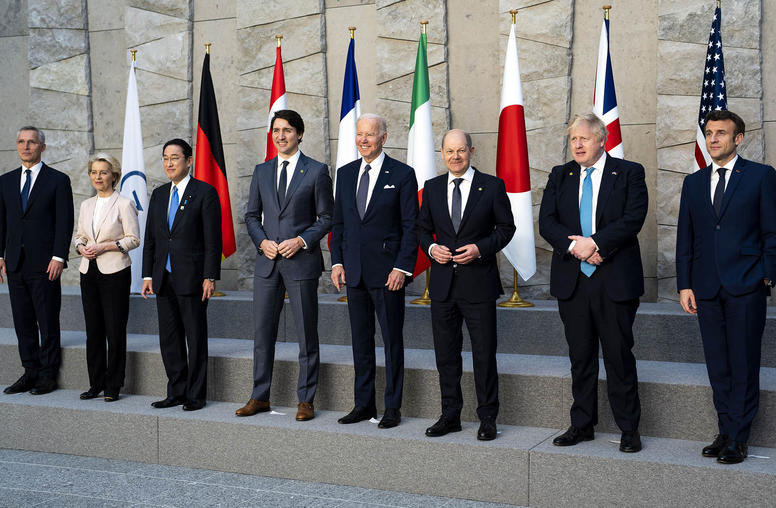
The ‘Russia Factor’ in NATO-Japan Relations
Russia’s illegal and unprovoked aggression against Ukraine has changed Japan’s assessment of Russia, as well as Tokyo’s policy toward Moscow. In doing so, it has also brought NATO and Japan closer together in their views of Russia and led to broader NATO-Japan engagement. Whereas Russia was once a complicating factor in the NATO-Japan relationship, it is now a factor promoting relations.
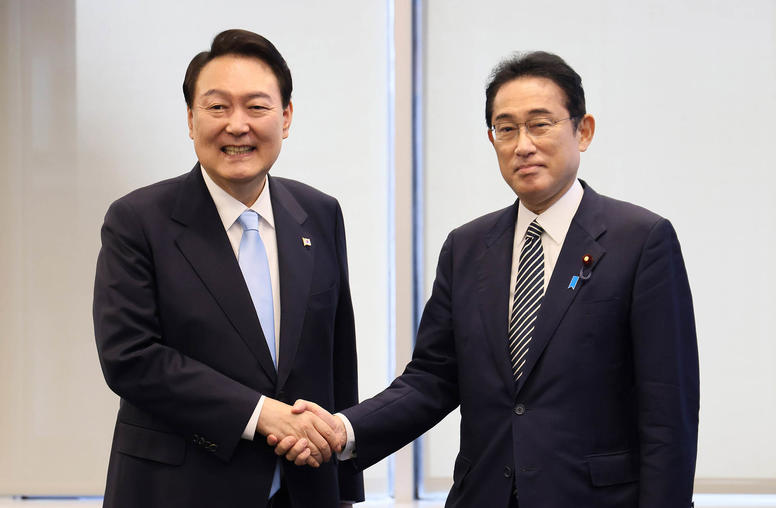
What’s Behind Japan and South Korea’s Latest Attempt to Mend Ties?
The meeting between South Korean President Yoon Suk Yeol and Japanese Prime Minister Fumio Kishida earlier this month — the first bilateral summit between South Korean and Japanese leaders in over a decade — was welcomed by both sides as a major step toward renewing relations. Despite ample common cause on issues such as regional security and economic growth, ties between the two countries have been strained in recent years over unresolved disputes stemming from Japan’s colonial occupation of Korea.
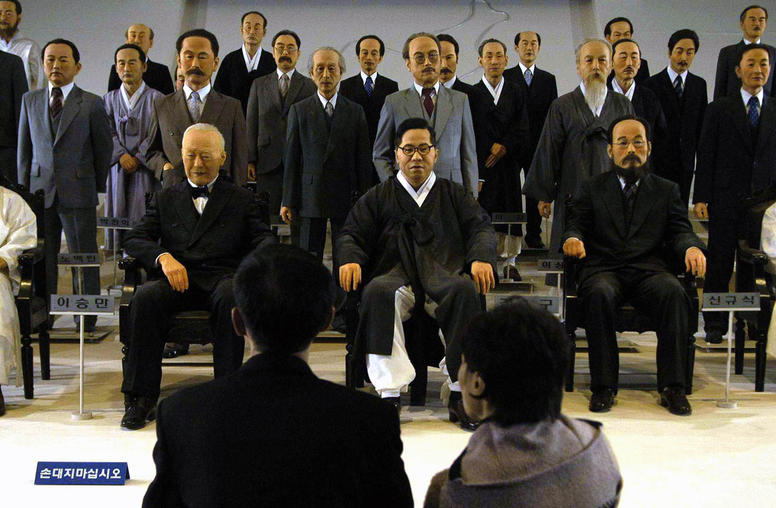
Japan, South Korea Must Address Mounting ‘Debt’ of Historical Atrocities
Few issues between Japan and South Korea draw as much attention and political resources while producing such ephemeral results as historical reconciliation. In two years, the countries will reach milestones for major agreements, such as the 10th anniversary of the 2015 “comfort women” agreement and the 60th anniversary of the Treaty on Basic Relations between Japan and South Korea. Between these two landmark deals are several official Japanese apologies, government speeches acknowledging Japan’s colonial past, visits by Japanese dignitaries to Korean memorial sites, a public-private reparations program, government-level “friendship” initiatives and civil society efforts to grapple with so-called history issues.
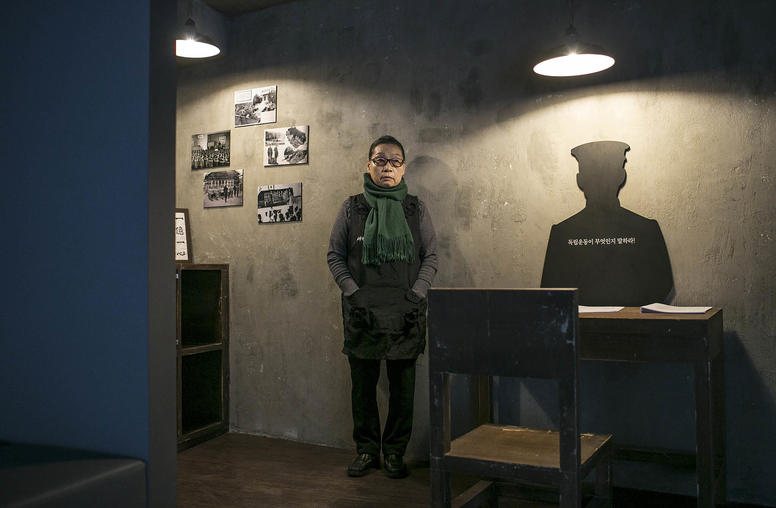
Beyond the Courts: History-Related Lawsuits and South Korea-Japan Relations
While the relationship between South Korea and Japan is fraught with a number of historical and territorial disputes, the current cycle of tensions focuses our attention on lawsuits related to the colonial era. Most notably, bilateral ties soured after 2018, when two landmark rulings from the South Korean Supreme Court ordered Japanese firms to compensate Korean plaintiffs for their wartime forced labor.
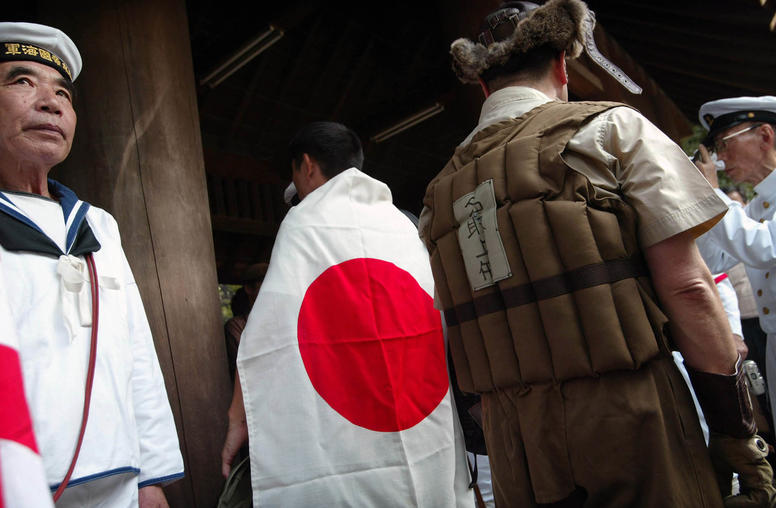
How to Address the Racism at the Heart of Japan-South Korea Tensions
Anti-Korean racism is at the heart of historic and unresolved tensions between Japan and South Korea. It will be near impossible to resolve disputes like the comfort women issue without addressing this racism. This is because the difficulty in reaching a consensus on the Japanese side often derives from the underlying tendency among many Japanese to view Koreans as “inferior” and “untrustworthy.” U.S. actors, including officials, businesses and academics, should understand the consequences of the important role they have played in perpetuating such prejudice and help right this wrong.

Mirna Galic on Japan’s New National Security Strategy
President Biden will meet Friday with Japanese Prime Minister Fumio Kishida amid “a really high sense of insecurity” over North Korean missile tests, says USIP’s Mirna Galic. On the agenda: Japan’s new national security strategy, which features “potential for closer cooperation and integration of U.S. and Japan operations.”

What You Need to Know About Japan’s New National Security Strategy
Japan released on Friday a new, robust national security strategy and complementary defense planning documents. The strategy is Japan’s first in nearly 10 years and only its second ever. The strategy navigates the country’s response to significant changes in the regional and global security environment, including Russia’s invasion of Ukraine, and reflect Japan’s growing sense of vulnerability vis-à-vis its immediate neighbors. USIP’s Mirna Galic looks at the new strategy and what it means for the region.
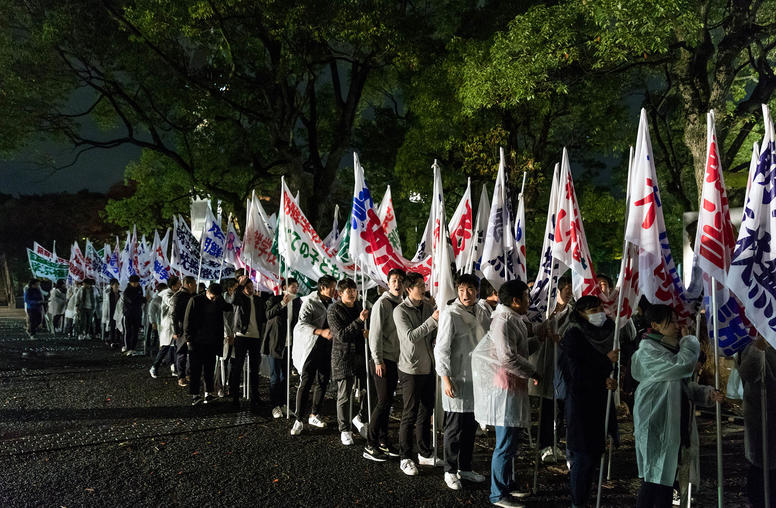
Citizenship Policy Reform in Japan as a Path to Cooperation with South Korea
Over the past two decades, increasingly vocal and visible anti-immigrant and, specifically, anti-Korean sentiment has risen in Japan’s public sphere. Internet chat rooms such as “2-channel” have become forums for anonymous posts expressing anti-foreign, anti-Korean and anti-Chinese sentiment. Similarly, anti-immigrant — and specifically anti-Korean — sentiment on the streets has increased through such organizations as the zaitoku-kai (the “Citizens group that will not condone special rights for Koreans in Japan”).